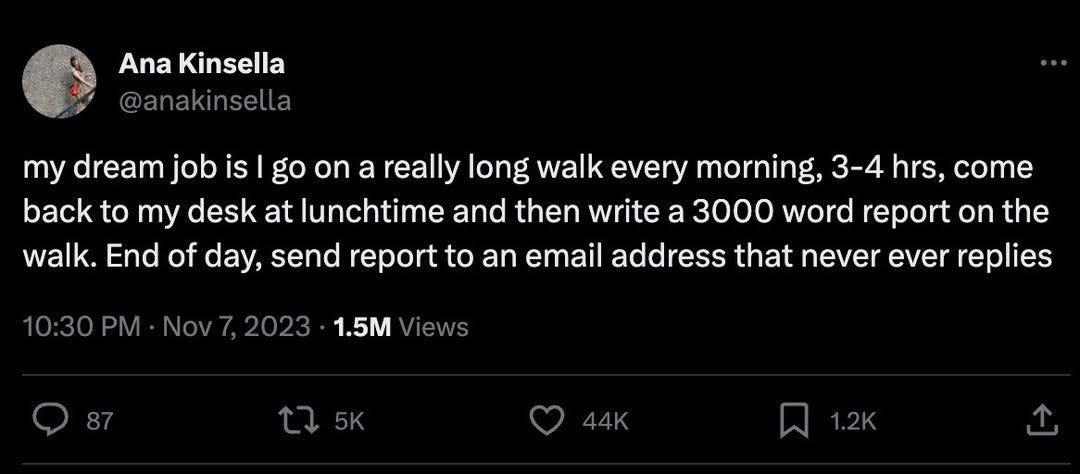Was the 'radical transparency' firm a PR ruse?
ALSO: micro-managing bosses give workers heart attacks / internal comms
Was the hedge fund built on radical candour just spin?
Would you work in an organisation where everyone gave each other a score after every meeting? Leaving a meeting room and seeing your updated score on the company league table. That was the working model of Ray Dalio's investment fund Bridgewater, as explained in his monster bestseller 'Principles'.
I've always thought there was something not quite right about the story of Dalio and his system of radical transparency. Whenever he talked about the practice (that had apparently been operating for years) he always used the same single example of someone once giving him a score of 4 out of 10 in a meeting.
Dalio worked hard to win over influential people. He was a regular case study in business books. He charmed Adam Grant so much that Grant included him in podcasts and then collaborated with him turning his grading system (Dot Counter) into a plug-in that any firm could add to Zoom.
But whenever someone did their own digging the story sounded a bit worse. There was evidence that almost half of employees didn't last a year in the firm. That the system of publicly sharing a league table of scores created a Mean Girls atmosphere that choked out new starters. (Here’s a new recruit trying to be convincing when telling the story of how being the bottom of the league table was, erm, energising.)
In this extract of a new book the veil is fully dropped. It’s the colour in the stories that is most alarming.
A puddle of urine in the men's bathrooms led to an espionage operation that tracked who had used the toilets, and the state they left them in. The organisation spent $100m trying to create a software version of their operating system, with no success.
But worse the rating system didn't seem to achieve what it was intended to. "The more time that people spent on the Principles — and its... rating experiments — the worse the company’s investments seemed to perform".
This is a fantastic read. This podcast on it is also brilliant.
Workers with micromanaging bosses are more likely to experience stress related illnesses - right up to the level of increased heart attacks
When you send weekend emails research suggests that receivers perceive them as more urgent, and get more stressed replying
I was really struck recently with two conversations. One with a student and then immediately with a senior leader. The student told me that every single person in his class was using ChatGPT all of the time. The leader told me that their firm wasn’t really using it at all. It felt like a clear way of seeing how when we’re part of something big and slow-moving we miss the opportunities that individuals seize immediately when they feel they are likely to benefit…
Just a reminder that you're not competing against AI, you're competing against someone else using AI.
Generative AI is already driving down demand for freelancers and a decline in their earnings.The opportunity is to use AI as your copilot. This FT article also reports the research I mentioned last week that gave consulting staff GPT-4. Those who used it were far more productive than their colleagues who didn't.
Not only did AI-assisted consultants carry out tasks 25 per cent faster and complete 12 per cent more tasks overall, their work was assessed to be 40 per cent higher in quality than their unassisted peers.Microsoft’s workplace A.I. Copilot has launched (to the firms willing to pay the $30 per user per month upgrade for it). It allows you to ask ‘What’s hot in my inbox?’, it can draft replies to emails, write an event plan or summarise a meeting you’re unable to attend. Very much worth checking out the launch video
Last week’s guest on Eat Sleep Work Repeat, Frances Frei, has her own podcast Fixable. I really enjoyed this episode where a listener raised the knotty issue of generational conflict in the office
“The only thing that solved my burnout was having a kid” - I liked Anne Helen Petersen’s piece updating what she thinks about burnout. (The comment is what someone said to her that helped her realise that having life outside of work is so much richer. Child not required.)
Wow, when a CEO chooses whether to invest in a top quality internal comms team they are indirectly deciding if their team will trust them: (thanks to Anna Durczak with data from the Institute of Internal Communication)
I adored this piece about the podcaster Catherine Carr who just stops people to ask ‘where are you going?’ Once you’ve read it I recommend putting the podcast on, it kept me company while I cooked a meal. It’s beautiful
This is on a similar theme: “The things we think will make us feel happier – acing exams, securing a dream job, buying that dress – usually don’t, but small habits can make a big difference. One of them is talking to strangers”.





